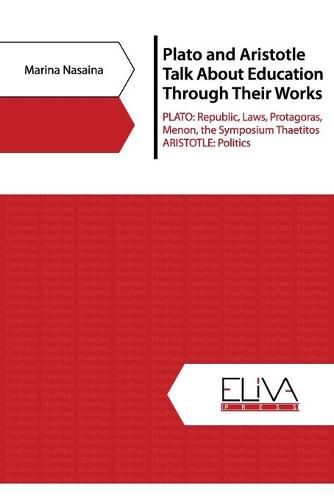Readings Newsletter
Become a Readings Member to make your shopping experience even easier.
Sign in or sign up for free!
You’re not far away from qualifying for FREE standard shipping within Australia
You’ve qualified for FREE standard shipping within Australia
The cart is loading…






Plato, through the dialogues of Republic, Laws, Protagoras, Menon, The Symposium and Theetitos, links inherently education with state stability. The proper functioning of the state machinery presupposes education and seeks the first foundation of political and social stability. The role of education at the social and political level is enormous, since it believes that the political instability of its time, the corruption of institutions and morals should be addressed through a political and social reform, based in particular on a rigorous control in the field of education. Aristotle, on the other hand, in his Politics connects the state, which has the greatest responsibility for the proper education of the citizens, with education. The main purpose of education for Aristotle is to create people with quality character. Virtue is not for the philosopher a personal success of man but is the result of a group effort of socialization that is conquered within organized society and is inextricably linked to political society. After all, education must teach young people the necessary knowledge for their daily lives and everything that is necessary to make a person more moral. Thus, the ultimate goal of education is the formation of a quality character along with the parallel and equal practice of moral and mental virtue, which will lead society collectively to happiness.
$9.00 standard shipping within Australia
FREE standard shipping within Australia for orders over $100.00
Express & International shipping calculated at checkout
Plato, through the dialogues of Republic, Laws, Protagoras, Menon, The Symposium and Theetitos, links inherently education with state stability. The proper functioning of the state machinery presupposes education and seeks the first foundation of political and social stability. The role of education at the social and political level is enormous, since it believes that the political instability of its time, the corruption of institutions and morals should be addressed through a political and social reform, based in particular on a rigorous control in the field of education. Aristotle, on the other hand, in his Politics connects the state, which has the greatest responsibility for the proper education of the citizens, with education. The main purpose of education for Aristotle is to create people with quality character. Virtue is not for the philosopher a personal success of man but is the result of a group effort of socialization that is conquered within organized society and is inextricably linked to political society. After all, education must teach young people the necessary knowledge for their daily lives and everything that is necessary to make a person more moral. Thus, the ultimate goal of education is the formation of a quality character along with the parallel and equal practice of moral and mental virtue, which will lead society collectively to happiness.